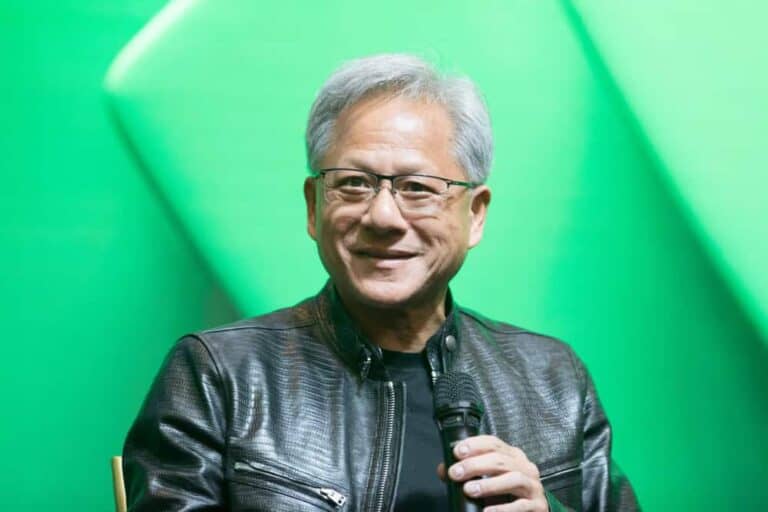Nvidia CEO Jensen Huang reports that demand for Nvidia chips remained strong despite concerns that DeepSeek would hamper growth.
Nvidia’s profits and revenues rose sharply in the last quarter, reports the Financial Times. This was due to technology companies continuing to massively build AI infrastructure, driving demand for Nvidia’s chips. Revenue rose 78 percent year-on-year to $39.3 billion, above estimates of $38.3 billion in a Bloomberg survey. The company expects sales of $43 billion in the current quarter.
Nvidia had broad group of shares rise
Nvidia has been one of the best-performing stocks on Wall Street for the past two years and helped lift the broader market. This was because investors expected more companies to benefit from the rapid growth of AI. This year, however, shares fell after Chinese AI startup DeepSeek claimed it could train models on less sophisticated chips than competitors such as U.S.-based OpenAI.
CEO Jensen Huang (pictured) waved away those concerns Wednesday, saying there was tremendous demand for Nvidia’s latest Blackwell chips. Data center revenue nearly doubled in the quarter ending Jan. 26 as major technology companies rapidly expanded their AI offerings. Blackwell generated $11 billion in revenue in the quarter.
DeepSeek just driving technology
Huang specifically addressed DeepSeek during a conversation with analysts. He stated that new reasoning models, such as DeepSeek’s R1, consume much more AI chip power than previous models. The sudden emergence of DeepSeek, he said, would fuel global interest in the technology.
Blackwell’s rollout initially experienced some problems, with production issues and reports of some chip versions overheating in servers. However, quarterly results suggest that the transition from the previous chip architecture went smoothly.
Lower profit margins
Net profit was $22.1 billion, up 80 per cent from the same quarter last year, despite a nearly 50 per cent increase in operating costs. Nvidia CFO Colette Kress noted that profit margins were down because of the move to the more complex and expensive Blackwell systems. Nvidia’s shares remained largely stable in erratic after-hours trading in New York after rising nearly 4 per cent during the regular session.
Uncertainty over export controls and import duties
Analysts before Wednesday’s announcement also pointed to uncertainties about how new U.S. export controls and import duties could affect Nvidia’s future. The company finds itself in the tension between Washington and Beijing, which are embroiled in a technological arms race in AI.
In the final days of Joe Biden’s administration, a new export control regime for AI diffusion was proposed. That should make it harder for China to circumvent U.S. export restrictions on AI chips through other countries. Nvidia publicly criticized these rules, arguing that they would weaken competitiveness and undermine innovation.
However, the Trump administration has given few signals that it will change this course. Efforts continue to be made to curb China’s access to advanced chips. The president is even threatening new import tariffs on semiconductors from Taiwan.
